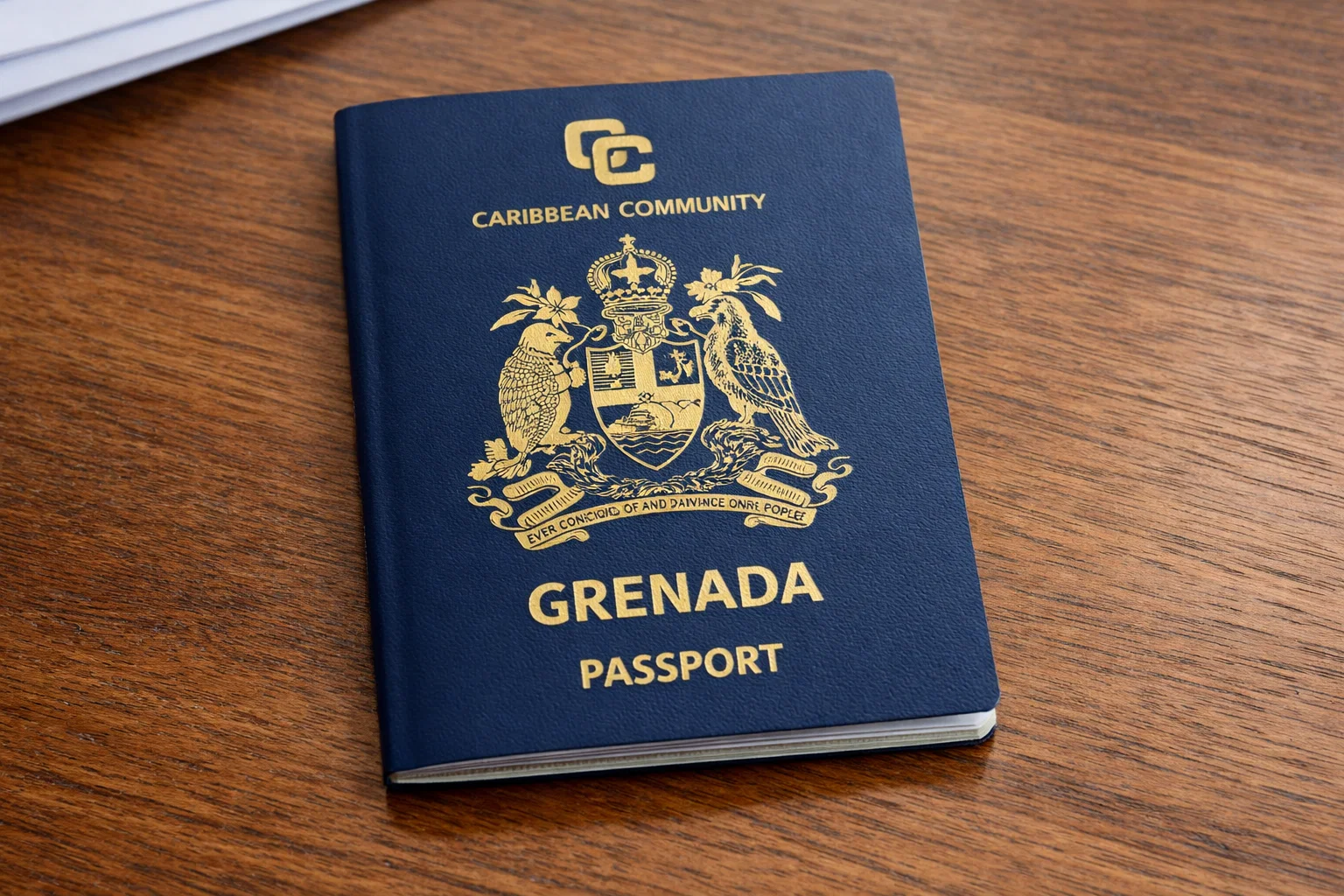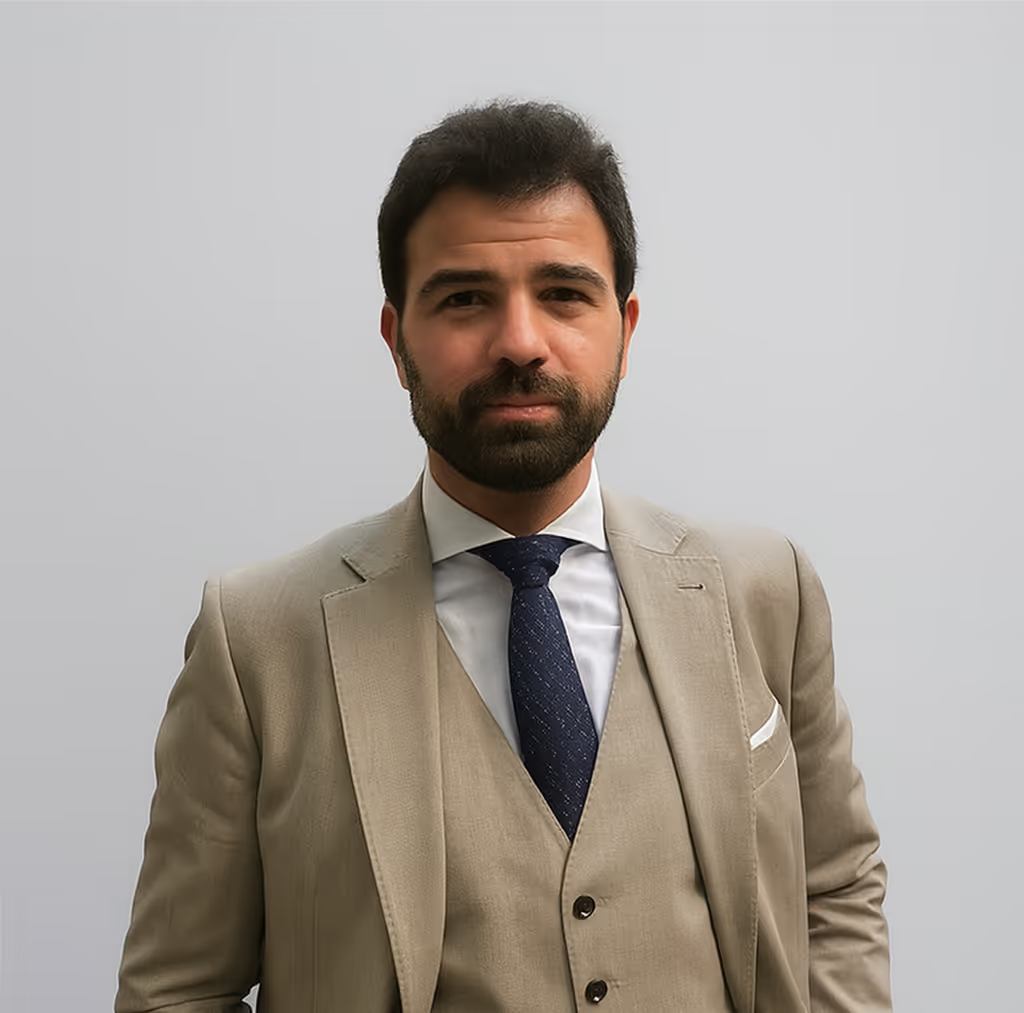Looking to get a residency visa by investing, but not keen on buying property? You’re not alone.
More and more applicants now favour the Portugal Golden Visa investment route via regulated funds, avoiding the hassle tied to owning property.
This investment fund option is growing fast, especially in places like Portugal, where Portuguese investment funds are regulated, tax-efficient, and hands-off.
But here’s the catch: not all Golden Visa funds are created equal.
Choosing the right one is about more than just getting a residence permit. It’s about protecting your money, making sure the fund is compliant, and working with a credible fund manager. And with so many options, venture capital funds, private equity, real estate-related funds, and more, it’s easy to feel overwhelmed.
That’s where this guide comes in. We’ll show you exactly how to select a Golden Visa fund, what to avoid, and how to spot the best opportunities, whether you're focused on immigration, returns, or both.
Need Help Choosing the Right Golden Visa Fund?
Our experts can guide you through fund selection, eligibility, and long-term planning — all tailored to your investment goals and immigration pathway.
Get Free Personalised GuidanceWhat Is a Golden Visa Fund?

A Golden Visa fund is a qualifying investment vehicle that allows foreign nationals to gain residency, and in some cases even citizenship, by placing capital into a government-approved investment fund, rather than buying property.
In plain terms: instead of purchasing real estate, you invest in a professionally managed fund that meets the legal and financial standards of a country’s Golden Visa program. This model is particularly common in Portugal, where Portugal golden visa funds are a key part of the Portugal Golden Visa Program.
So, how is this different from traditional property-based Golden Visa options?
Fund investments are designed for those who prefer a more passive approach. Licensed professionals handle funds, while property may involve upkeep, legal management, and unpredictable costs. They also allow you to spread your invested capital across a broader market, often with exposure to multiple sectors.
Why funds?
They're often hands-off, tax-efficient, diversified, and professionally managed, a smart alternative for Golden Visa investors who don’t want the hassle of real estate.
The types of funds available under various programs vary, but common categories include:
Each fund follows its own investment strategy, has different risk levels, and comes with specific requirements under the local Golden Visa application process.
Countries That Offer Fund-Based Golden Visas
While Portugal may have popularisedt he Golden Visa financing popularised the Golden Visa funding route, several other countries offer similar opportunities.
If you’re considering investing for residency or citizenship, it’s important to understand how different programs compare.
Below are some countries that allow Golden Visa investments via regulated funds, along with how their terms differ.
🇬🇷 Greece
Greece’s Golden Visa allows investments in real estate investment companies, mutual funds, and occasionally private equity funds.
The entry point is typically €500,000, but unlike Portugal, investors must hold the investment indefinitely to maintain their residency status.
Citizenship is possible after seven years of continuous legal residency.
Greece’s Golden Visa—fund routes made clear
Understand entry minimums, holding requirements, and the path to citizenship.
✅ Join the Greece Golden Visa Facebook GroupFree to join • Expert-moderated
🇪🇸 Spain (Program Ended April 2025)
Spain previously permitted a €1 million investment into financial assets such as investment funds or shares in Spanish companies.
Update: Spain officially ended its golden visa program in April 2025. This route is no longer available for new applicants.
The residence permit can be renewed every two years, with the investment option to apply for citizenship after ten years.
🇵🇹 Portugal
Portugal was one of the first countries to offer the Golden Visa investment fund option for investment funds as a real alternative to property.
Investors can place a minimum investment of €500,000 into Portugal investment funds regulated by the Portuguese Securities Market Commission (CMVM), with a pathway to Portuguese citizenship after five years.
The fund manager must meet strict compliance standards.
Choose the right Portugal Golden Visa fund
Compare timelines, fees, and risk profiles—so you invest with eyes open.
✅ Join the Portugal Golden Visa Facebook GroupFree to join • Expert-moderated
🇦🇪 United Arab Emirates (UAE)
The UAE offers long-term residency visas linked to public investment funds or government-approved business initiatives.
A capital transfer of AED 2 million (approx. €500,000) into designated funds can lead to a 10-year visa.
However, this program does not automatically lead to citizenship, and eligibility depends on specific economic contributions.
Navigate the UAE Golden Visa clearly
Talk to applicants and experts about the main routes.
Understand costs and what the visa does—and doesn’t—lead to.
Free to join • Expert-moderated
🇮🇪 Ireland & 🇮🇹 Italy
Both Ireland and Italy offer investment-based immigration routes.
- Ireland allows investment in approved Irish funds, including external fund management companies.
- Italy’s Investor Visa permits fund investments in innovative startups or strategic businesses.
Both cases necessitate careful structuring, clean criminal records, and the maintenance of residency for several years prior to naturalisation.
Italy’s Investor Visa—fund and startup routes
Learn from applicants and experts about requirements and the citizenship path.
✅ Join the Italy Investor Visa Facebook GroupFree to join • Expert-moderated
Key Criteria for Choosing a Golden Visa Fund
Legal Eligibility & Regulatory Compliance

Make sure the fund is officially authorised and approved under the Golden Visa rules of the country in question.
It’s not enough for a fund to simply be based in Portugal or Greece; it must meet strict criteria set by financial authorities and immigration regulators.
For example:
- In Portugal, funds must be registered with the CMVM
- In Greece, approval typically comes through the Hellenic Capital Market Commission (HCMC).
These bodies ensure the fund adheres to regulations, uses licensed managers, and provides transparency in how your capital invested is handled.
🚩 Red flag: Avoid any fund that claims to “qualify” without documentation or that’s run by entities not recognised by national financial regulators. If it’s not listed with the relevant commission, it’s a gamble.
When in doubt, request proof of registration and fund approval directly from the manager and verify it with the regulator’s website if needed.
Not Sure If a Fund Is Fully Approved?
We help investors verify fund eligibility, regulatory status, and compliance — before they commit. Don't take chances with your Golden Visa investment.
Speak to an Expert TodayInvestment Strategy & Sector Focus
Golden Visa funds vary widely in what they invest in and the strategy behind them.
Some are built around real estate, offering more predictable returns. Others target startups (venture capital) or growth-stage businesses (private equity) or focus on ESG, like green energy or social impact.
Ask yourself:
- Do I prefer stable income, or am I open to higher-risk, higher-return strategies?
- Am I comfortable with exposure to a single sector, or do I want broad diversification?
Request a fund summary or slide deck. A credible fund should clearly explain:
- What sectors it targets
- How capital will be deployed
- What kind of returns it is aiming for
If the strategy is vague or overly broad, that’s a red flag.
Track Record & Fund Manager Reputation
A fund is only as strong as the team behind it.
Before committing, take a moment to vet the fund manager. Look beyond the branding and ask questions that reveal whether they actually know what they’re doing.
Here’s what to check:
- Years of experience managing investment funds
- Previous successful funds (not just in the Golden Visa space)
- Sector expertise: Do they have a background in real estate, startups, or finance?
- Skin in the game: Are they personally co-investing?
If a manager avoids specifics, gives vague timelines, or lacks experience managing third-party capital, proceed cautiously.
Transparency & Governance
A well-run Golden Visa fund should be transparent about how your money is managed — full stop.
Here’s what to look for:
- Quarterly investor reports
- Access to audited financial statements
- An independent fund administrator or custodian overseeing operations
These checks exist to protect investors, especially those who aren’t based locally and can’t monitor things in person.
Fees & Cost Structure
Golden Visa funds often come with multiple layers of government fees, some transparent, others... less so.
Here are the common ones to expect:
- Management fee – typically 1–2% annually
- Performance fee (carry) – usually 10–20% of profits
- Subscription or setup fee – a one-time fee when you enter the fund
- Admin or custody fees – smaller ongoing charges
💡 Recommendation: Always request a full fee schedule upfront. Hidden costs can eat into your returns over time.
| Fee Type | Typical Range | Purpose |
|---|---|---|
| Management Fee | 1% – 2% per year | Covers ongoing fund operations and manager salaries |
| Performance Fee | 10% – 20% of gains | Incentivises the manager to maximise returns |
| Subscription Fee | 0.5% – 3% (one-time) | Upfront entry cost into the fund |
| Admin/Custody Fees | 0.2% – 0.5% annually | Third-party oversight and fund administration |
Fund Duration, Lock-in Period & Exit Terms
Golden Visa funds are typically closed-end, meaning your money is tied up for a set period, often 6 to 10 years.
But here’s where it gets tricky: that timeline doesn’t always align with the residency or citizenship schedule.
For example:
- You might qualify for citizenship in 5 years.
- But the fund may not return capital until year 8
This mismatch can affect your liquidity and long-term planning.
💡 Choose a fund that’s either:
- Tailored to the Golden Visa timeline
- Or offers partial redemptions / a clear early-exit clause
And always clarify: When can I get my money back, and under what conditions?
Risk Profile & Diversification
Every fund carries a level of risk, and no, not all risks are created equal.
Some Golden Visa funds aim for capital preservation; others are structured around growth or speculative returns. The question is: how much risk are you willing to take?
A real estate-linked fund might provide more stable returns, but with lower upside. On the other hand, venture capital or emerging market-focused funds may offer the potential for higher gains, along with higher volatility.
Diversification is also key. A fund that invests in multiple sectors or geographies is generally more resilient than one tied to a single asset or project. It's also worth checking whether currency exposure plays a role, especially if your income is in USD or GBP but the fund operates in euros.
Ultimately, your risk appetite should match the fund’s structure, and the fund manager should be upfront about what kind of investor the product is designed for.
Tax & Currency Implications
Before choosing a Golden Visa investment fund, it’s important to understand how taxes and currency shifts could affect your returns both in the country you're investing in and at home.
Some countries, like Portugal, offer favourable tax regimes for foreign investors. Under the Non-Habitual Residency (NHR) scheme, for instance, certain types of foreign income, including gains from a qualifying investment, may be exempt from Portuguese taxation for up to 10 years. But this doesn't mean you're fully off the hook; your home country might still tax your income or capital gains.
You’ll also want to consider currency exposure. If your assets are in USD or GBP and you're investing in EUR, unfavourable exchange rates could eat into your gains or, conversely, amplify them.
💡 Best practice: Speak with a cross-border tax advisor before investing. A 1% shift in exchange rates or tax treatment can make a meaningful difference to your real return, especially when you're investing €500,000 or more.
Fund-Based Golden Visa Programmes Compared
| Country | Route Type | Min. Investment | Residency Required | Time to Citizenship | Dual Citizenship Allowed | Fund Types Allowed | Visa-Free Travel Access |
|---|---|---|---|---|---|---|---|
| 🇵🇹 Portugal | Golden Visa (RBI) | €500,000 | ~7 days/year | 5 years | ✅ Yes | VC, PE, Regulated Funds | Schengen, EU |
| 🇬🇷 Greece | Golden Visa (RBI) | €500,000 | ❌ Not required | 7 years | ✅ Yes | Mutual Funds, RE Funds | Schengen |
| 🇪🇸 Spain (Ended April 2025) | Golden Visa (RBI) | €1,000,000 | ❌ Not required | 10 years | ❌ (Limited) | Investment Funds, Business Equity | Schengen |
| 🇦🇪 UAE | Investor Visa (LTR) | AED 2M | ✅ Required (flexible) | Not automatic | ✅ Yes | Public Investment Fund | GCC, strategic countries |
| 🇮🇪 Ireland | Immigrant Investor Programme | €1,000,000 | ✅ Required | 5 years | ✅ Yes | Approved Irish Funds | EU |
| 🇮🇹 Italy | Investor Visa (RBI) | €250,000+ | ✅ Required | 10 years | ✅ Yes | Startups, Strategic Funds | Schengen, EU |
As you can see, while multiple countries offer fund-based residency paths, the rules, timelines, and investment types vary widely.
Choosing the right country and the right fund depends on your goals, whether that’s fast-track citizenship, visa-free travel, or long-term capital growth.
Red Flags to Avoid
Not every Golden Visa investment fund is what it claims to be.
In fact, some are designed more for marketing than for investor protection. If you're evaluating investment options, keep an eye out for these classic red flags:
These red flags aren’t just technicalities; they’re often the difference between a safe, qualifying investment and a costly mistake. Unfortunately, many first-time Golden Visa investors are lured in by flashy promises or pressured to make quick decisions without proper vetting.
A few smart questions now could save you from years of complications or worse, a rejected Golden Visa application.
Due Diligence Checklist
Investing in a Golden Visa fund isn’t just about getting a residency card; it’s also about protecting your capital. The responsibility to dig deeper falls on you. Yes, fund managers will pitch their strengths.
Yes, you’ll hear about “government approval” and “low risk.” But unless you see real documentation, it’s just marketing.
Before committing, run through this checklist to make sure you're backing something solid:
How to Get Help Choosing the Right Golden Visa Fund
Choosing the right Golden Visa fund isn’t just a matter of checking a few boxes.
Between regulatory rules, financial structures, risk levels, and long-term goals, it can quickly become overwhelming, even for seasoned investors.
That’s where expert guidance makes all the difference.
Our team works exclusively with Golden Visa applicants and has helped hundreds of families evaluate their options, compare funds, and avoid costly missteps.
Whether you're just beginning to explore the idea or already reviewing fund brochures, we’ll help you cut through the noise and move forward with confidence.
A quick consultation can help you:
- Understand which fund types match your personal goals (income, growth, diversification)
- Get clarity on legal eligibility and how immigration rules apply in your case.
- Navigate tax considerations, structuring, and cross-border implications
- Review documents and deadlines to make sure nothing’s missed
Need Help Choosing the Right Golden Visa Fund?
Our advisors compare Portugal’s top CMVM-regulated funds, explain tax implications, and connect you directly with authorised legal partners in Lisbon, Porto, and Madrid.
Speak to an ExpertConclusion
Choosing the right Golden Visa fund isn’t just about ticking boxes for residency; it's about where and how you want to grow your capital. This decision blends immigration, investment, and long-term life planning.
Take the time to do your due diligence. Read the fine print. Speak to professionals. But don’t wait forever; these programs can tighten or disappear with little warning, especially as demand rises.
Whether your interests lie in venture capital, real estate income, or ESG opportunities, there is a suitable fund available. The sooner you start looking, the more options you’ll have on the table.
Your visa. Your money. Your move—make it count.
 Portugal
Portugal
 Spain
Spain Italy
Italy Greece
Greece Grenada Citizenship by Investment
Grenada Citizenship by Investment







.svg)
